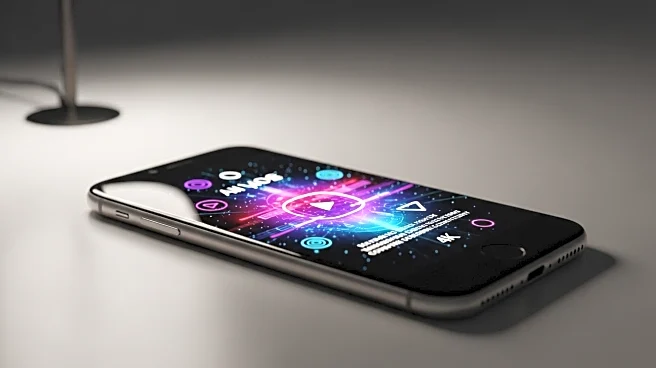What's Happening?
The Sora app, developed by OpenAI, has quickly ascended to the top of app charts with its AI-generated video content, mimicking TikTok's format. The app allows users to create short videos using text prompts, generating versions of themselves or friends, and can mimic copyrighted content. Despite its popularity, the app faces potential copyright issues, as it allows users to replicate TV shows and movies. OpenAI has not addressed these concerns, and the app's release comes amid discussions about the ethical use of AI in content creation.
Why It's Important?
The rise of the Sora app highlights the growing influence of AI in content creation and the potential challenges it poses to copyright laws. As AI-generated content becomes more prevalent, creators and rightsholders may face difficulties in protecting their intellectual property. The app's success reflects a shift in consumer preferences towards AI-driven entertainment, which could impact traditional media industries and content distribution models.
What's Next?
OpenAI may need to address copyright concerns and establish guidelines for the ethical use of AI-generated content. The app's popularity could lead to increased scrutiny from legal entities and rightsholders, potentially resulting in litigation or policy changes. The development of AI content creation tools will likely continue, prompting discussions on regulation and the balance between innovation and intellectual property rights.
Beyond the Headlines
The ethical implications of AI-generated content extend beyond copyright issues, raising questions about authenticity, creativity, and the role of human creators in the digital age. The app's success may drive further investment in AI technology, influencing cultural and societal norms around content consumption and creation.








